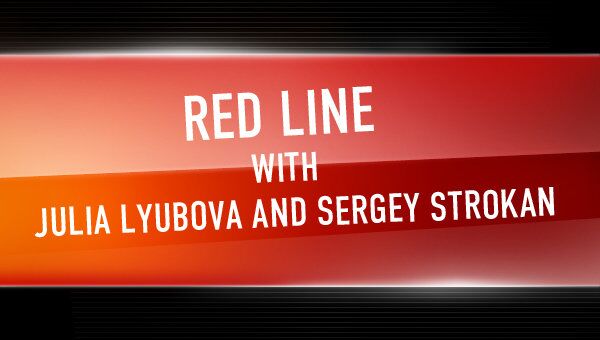Breaking a nearly three-month impasse, Russia's President Vladimir Putin and Ukraine's President Petro Poroshenko had met eye-to-eye for the second time, while attending Customs Union-EU-Ukraine talks in Minsk. With Ukrainian conflict put at the top of the agenda, the two leaders made an agreement to work together to stop the bloodshed and find a political solution to the crisis.
Studio guest Sergei Utkin, Head of Department of Strategic Assessment at the Center for Situation Analysis at the Russian Academy of Sciences, and Sergei Stankevich, Russia’s political and public figure and expert, Anatoly Sobchak Fund, shared their opinions with Radio VR.
Sergei Utkin: I think it could be the beginning of a much more healthier process. I look with the hope at the results of this meeting, because several dialog formats were started. There was an expert dialog started on economic issues, on the consequences of the association agreement between Ukraine and the EU. There was a dialog between the military staffs of Ukraine and Russia, at least it was announced. I don’t know if they have already reached out to each other, but I hope they will. And there was a dialog started between the border guard services. It is crucial to establish facts on the ground, because people speculate a lot about what is happening on the border between Russia and Ukraine, and no one can say for sure what is happening.
How would you assess the meeting between Poroshenko and Putin?
Vyachaslau Pazdnyak: On the face of it the results were not a big deal. However, the achievements are obvious, as the process is unfolding. I think the major gain of the Minsk summit has been the re-launch and the revival of some consultations in such vital areas as, first of all, the search for a peaceful solution, the attempts to bring closer the possibility of a ceasefire, including the resumed energy dialog and contacts to discuss the future relations with Ukraine within the framework of its forthcoming association with the EU and also the Eurasian Union. So, we have quite a number of positive movements towards the search for a solution.
As for the main thing, we don’t have anything concrete on the horizon, meaning the peace settlement. The missing element so far is the absence of the framework for the negotiations process. We don’t have a mechanism for the negotiations. But Minsk has paved the way for the creation of such a mechanism.
Do you that the place – Minsk – is also important? No one would say that this is the solution made in the US or made in the EU, or made in Moscow.
Vyachaslau Pazdnyak: I agree, I think that the place for the summit – Minsk – is the result of some compromises. First of all, we have seen a compromise in the relations between Minsk and the EU, and the West at large. Probably, at this point in time Minsk was perhaps the only possibility for Moscow to come and talk. It also indicates that the solution may be generated from within and inside the post-Soviet space.
Sergei Stankevich: The main problem is that everybody is now too concentrated on the war, but there are no workable peaceful proposals discussed. Russia cannot be the source of the real peaceful plan, because, as Mr. Putin told in Minsk, Russia is not the side of the conflict. It should be Kiev who can make real peaceful proposals, but it looks like President Poroshenko became kind of a hostage of a “war party” consolidated in Kiev. I think a workable peaceful initiative could be produced by the European leaders and the best format to discuss a reliable peaceful plan could be – Germany, France, Russia and Ukraine.

